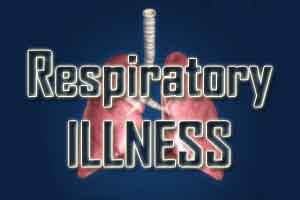- Home
- Editorial
- News
- Practice Guidelines
- Anesthesiology Guidelines
- Cancer Guidelines
- Cardiac Sciences Guidelines
- Critical Care Guidelines
- Dentistry Guidelines
- Dermatology Guidelines
- Diabetes and Endo Guidelines
- Diagnostics Guidelines
- ENT Guidelines
- Featured Practice Guidelines
- Gastroenterology Guidelines
- Geriatrics Guidelines
- Medicine Guidelines
- Nephrology Guidelines
- Neurosciences Guidelines
- Obs and Gynae Guidelines
- Ophthalmology Guidelines
- Orthopaedics Guidelines
- Paediatrics Guidelines
- Psychiatry Guidelines
- Pulmonology Guidelines
- Radiology Guidelines
- Surgery Guidelines
- Urology Guidelines
Narrow-spectrum antibiotics better in children with respiratory infections: JAMA

Dr.Gerber and colleagues in their study published in the Journal of the American Medical Association have found that when it comes to prescribing antibiotics for children suffering from common respiratory infections, a more selective approach should be adopted. They concluded this after studying pediatric treatment practices in more than 30,000 patients with respiratory illnesses including earaches, strep throat, and other common infections.They also found that narrow-spectrum antibiotics acting against smaller range of bacteria had less side effects than broad-spectrum antibiotics.
When judged by both practical and clinical outcomes, narrow-spectrum antibiotics performed equally well or better than broad-spectrum ones, with fewer disruptions to family routines.The study reflects an "antimicrobial stewardship" approach, guiding healthcare providers to prescribe the most appropriate antibiotic for a patient's specific type of infection, with the aim of improving individual outcomes and reducing the overall risk of antibiotic resistance -- in which disease-causing microorganisms develop resistance to commonly used antibiotics.
"Many children unnecessarily receive broad-spectrum antibiotics for common infections, which can lead to antibiotic resistance and unnecessary side effects," said study leader Jeffrey Gerber, MD, Ph.D., associate director for Inpatient Research Activities in the Center for Pediatric Clinical Effectiveness at Children's Hospital of Philadelphia (CHOP). "This study showed that inappropriate prescribing of antibiotics also affects families at a much more practical level, such as missed days from school and work, side effects of the drugs, and costs for extra childcare. These can be a real burden for families."
The study team performed two complementary studies in 31 primary care practices in CHOP's pediatric network in Pennsylvania and New Jersey, between January 2015 and April 2016. They drew on electronic health records of infants and children up to age 12 diagnosed with an acute respiratory tract infection (ARTI) and prescribed an oral antibiotic. In a retrospective cohort of approximately 30,000 patients, 14 percent received broad-spectrum drugs and 86 percent received narrow-spectrum drugs.
The Artis in the analysis were acute otitis media (an earache), Group A streptococcal pharyngitis (strep throat) and sinusitis (sinus infection). ARTIs account for the majority of antibiotic exposures in children. In addition to assessing clinical outcomes in a retrospective cohort of 30,000 children, the researchers studied a prospective cohort of 2,472 children, doing telephone interviews with caregivers to measure outcomes that parents had identified as their highest concerns: adverse drug effects, additional childcare costs, lingering symptoms and missed school days.
The study team found a significantly higher risk of adverse events for broad-spectrum antibiotics compared to narrow-spectrum antibiotics (3.7 percent vs. 2.7 percent as documented by clinicians, and 35.6 percent vs. 25.1 percent, as reported by patients and families). The rates of treatment failure were not significantly different between both types of antibiotics.
CHOP's Center for Pediatric Clinical Effectiveness (CPCE) recently issued a research brief and policy tip sheet summarizing seven years of research to develop a clinical practice model for antibiotic stewardship in pediatric outpatient settings. "Research tells us that antibiotic stewardship programs not only reduce the overall burden of antibiotic resistance, but also improve patient outcomes," said Gerber, who added, "Our previous research has also shown that these programs can lower costs for insurers and families that pay for prescriptions. These programs are a win-win-win for public health, families and insurers."
For more details click on the link : JAMA, 2017; 318 (23): 2325 DOI: 10.1001/jama.2017.18715
Center for Pediatric Clinical EffectivenessChildren’s Hospital of PhiladelphiaCHOPJAMAJeffrey GerberJournal of the American Medical Association.respiratory illnessesrespiratory infectionsstreptococcal pharyngitis
Source : Press ReleaseNext Story
NO DATA FOUND

Disclaimer: This site is primarily intended for healthcare professionals. Any content/information on this website does not replace the advice of medical and/or health professionals and should not be construed as medical/diagnostic advice/endorsement or prescription. Use of this site is subject to our terms of use, privacy policy, advertisement policy. © 2020 Minerva Medical Treatment Pvt Ltd